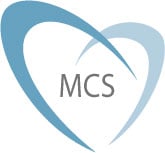Renewable Portfolio Standards
What standards and certifications are used for PV mounting systems?
Technischer Überwachungs-Verein: TUV solar certification
Solar inverter certifications: UL 1741, IEC 61683, IEC 62109
Solar charge controller certifications: IEC 62509 and IEC 62093
Solar battery certification: IEC 61427 explained
CSTB Certification: BIPV quality mark for France
CE Mark: testing and certification
[...]

 MCS Certification Scheme[/caption]
MCS Certification Scheme[/caption]